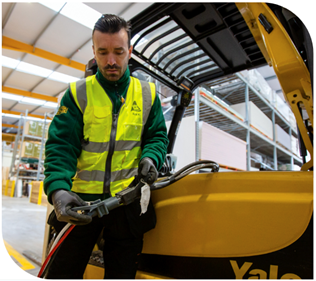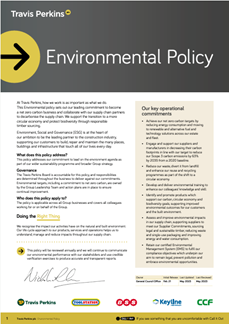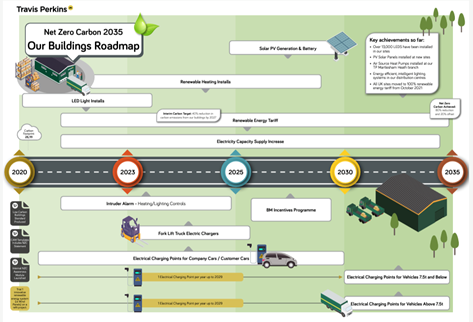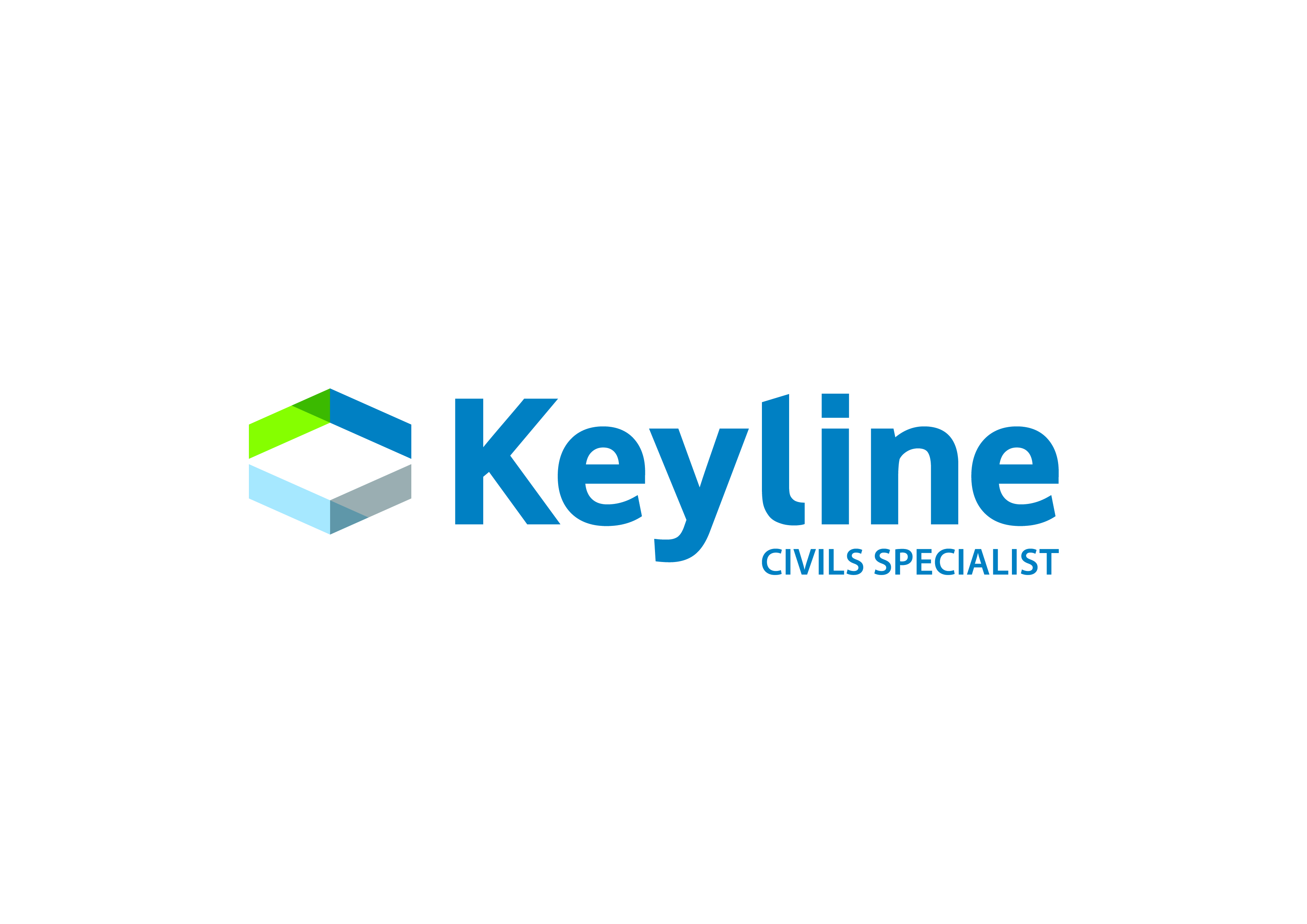Construction has a key role to play in decarbonising the built environment and Travis Perkins plc is committed to lead on this agenda.
The Group’s purpose and sustainability priorityThe Group has committed to reducing Scope 1 and 2 carbon – relating to the Group’s fleet and estate – by 80% by 2035 and offset any remaining emissions. Whilst 99% of the Group’s footprint is in the supply chain, to have integrity in asking suppliers and customers to decarbonise the Group must address its own direct emissions. The Group generates waste in its operations, primarily relating to added packaging or obsolete products, and takes its role in preventing, reusing, recycling and recovering waste seriously in order to protect the natural environment and the communities within which it operates. |  |
Progress in 2023The Group’s main priority for 2023 was training colleagues and increasing expertise on sustainability and carbon. Operating sustainably means managing the Group’s estate and fleet well and transitioning them to net-zero carbon. The Group has a science-based target to reduce Scope 1 and 2 carbon by 80% by 2035 from a 2020 baseline and so far has achieved a 33% reduction. |
  |
Decarbonising the fleet The Group continued to use Hydrotreated Vegetable Oil (“HVO”), a low-carbon alternative to diesel, in 270 vehicles across the Group during 2023. The use of HVO saved 1.4 million litres of diesel, saving 3,500 tonnes of carbon. The Group continues to work closely with Logistics UK and the Department for Transport to drive change and keenly awaits the publication of the Low Carbon Fuels Strategy. In the absence of this and in a difficult economic climate, use of HVO may slow in 2024. The Group remains committed to its decarbonisation goals and the fleet roadmap can be found below. |
Decarbonising the estate A pilot project was conducted in 2023 to understand the potential impacts of fully decarbonising one branch in each business. The project identified the types of renewable energy systems and low-carbon technologies, including PV solar panels, heat pumps and LED lights, needed to reduce carbon at each location. The findings will inform the long-term decarbonisation strategy. |
Reducing packaging In 2023 the Group reduced plastic packaging by removing air pillows and packing peanuts, replacing foam door corners with cardboard and changing shrinkwrap to a lighter grip film which requires less material. |








